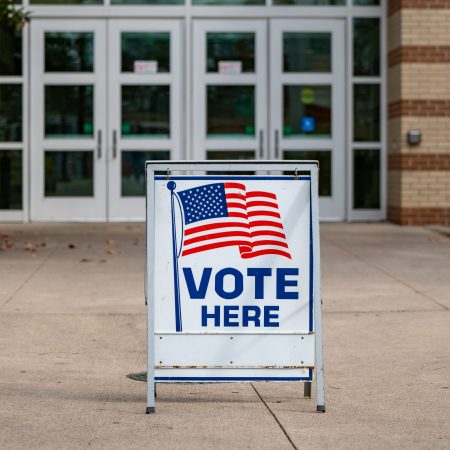Scott Harris, his faith in Tigers’ young core resolute, not seduced by deadline flash
DETROIT — If you didn’t know this before Thursday, you should know this now, unequivocally.
Tigers’ president Scott Harris isn’t trying to win press releases. He isn’t trying to win the trade deadline. He’s trying to build winning and championship baseball teams for now and for years to come.
And if his plan, his methods, don’t generate big headlines or sweeping approval throughout the fan base, he can live with that.
“It’s important that we continue to build through development and continue to build for the growth we can access from within,” he said Thursday after trading for five relievers and two starting pitchers at the trade deadline. “It’s one of the reasons why this organization is so healthy and we have a nine-game lead and a farm system that’s winning a ton.
“I have to balance that. That’s the job. And if that subjects me to criticism, like, I totally understand it. But I’m never going make moves to avoid criticism if they are not in the best interest of the organization.”
You should also know now, unequivocally, that his faith in the talented young group of players both at the big-league level and coming up through the system is unshakable. Which is at least partly why the Tigers didn’t land any of the marquee names that were available — like third baseman Eugenio Suarez, who is now a Mariner.
There was an outside assumption the Tigers needed to acquire another right-handed bat, preferably one with power. And Harris, by all accounts, stayed in the conversation for Suarez right up until the deal was made with Seattle.
“I’m not sure our body of work over the first half suggested that we needed to add a right-handed bat,” Harris said.
Certainly not enough to warrant parting with any of the club’s top-tier prospects for a short-term boost, which was the cost.
“The central question we asked ourselves over and over again, is the player available better than the player we have? Do we believe in the player available more than we believe in the player we have now?”
He’s not just talking about Zach McKinstry, who has been the primary third baseman. Or righty hitters like Andy Ibáñez or Jahmai Jones or even Justyn-Henry Malloy. He’s also talking about the prospects such a trade would cost — Max Clark, Kevin McGonigle, Bryce Rainer, Thayron Liranzo, Josue Briceño and others.
“Every decision or non-decision is a bet,” Harris said. “If you decide to trade for a player, you are betting on that player. If you make a non-decision, which is a decision in itself, you are betting on the player you have. We’re betting on the player we would have had to give up to acquire that player.
“I think these guys have earned (that trust). We did what we did because we believe in these players. They are still getting into their prime years and they will continue to get better.”
Harris didn’t buy into all the outside noise about “seizing the moment,” nor is he swayed by any illusionary window of opportunity. To him, that’s a far too restrictive and narrow approach.
“We have a real opportunity in the American League this year, but I kind of hope we have a real opportunity every year,” he said. “If we run out the best version of us, we can beat a lot of teams and I think we’ve demonstrated that over the last year.”
They were the winningest team in baseball from the All-Star break last year through the All-Star break this year. They have a nine-game lead in the division. They have one of the highest-rated farm systems in the game. Seize the moment or build on the momentum?
“We want to be good every year, really, really good every year,” Harris said. “I don’t think we thought about this deadline as different from future years. I always want to sit in front of you and say we’ve got a real good baseball team and we’ve got a lot of chances to get better.
“I think I can credibly say, we have a really good baseball team by our competitive standing right now. I think I can also credibly say we got better (at the deadline). And I can credibly say that we have some players coming in our farm system, both for this year and for future years, that are going to help us get even better.”
The Tigers didn’t land Suarez. They didn’t land the marquee relievers like Jhoan Duran, David Bednar, Ryan Helsley or Camilo Doval. They didn’t land many players the casual fan would recognize, let alone celebrate.
But maybe, by incrementally strengthening both the rotation and bullpen — building a deeper and diverse pitching staff that manager AJ Hinch and pitching coach Chris Fetter can maneuver around different types of lineups — they got better nevertheless.
“My job is to make the best decisions for this organization,” Harris said. “I understand everybody wants to go grab the flashiest name and not give up any good players. But that’s not an option. We can’t do that.
“If we’re going to grab those players, we’re going to give up some really talented players and I didn’t think that was in the best interest of our organization.”
Harris pointed to the emergence of rookie Troy Melton, who the Tigers believe will be a swing-and-miss weapon in the bullpen down the stretch and into the playoffs. He pointed to Dillon Dingler, who scuffled mightily last September but has emerged as the team’s primary catcher. He mentioned Wenceel Perez, in the organization since he was 16, who is just now impacting the lineup in multiple ways.
Those are examples of players who at one time were sought after by teams either over the winter or in past trade deadlines.
“It comes with a real cost that is sometimes invisible to the casual observer,” Harris said. “If you move players you really believe in, sometimes it makes you worse. Sometimes if you go grab the flashiest player, you have to trade a better player to get that player. I’m hyper-conscious of that.
“I am not averse to doing those deals, but the specific asks were for players we think might actually be better than the player we would be acquiring — obviously on different timelines.”
You don’t have to love his methods. But you would be hard-pressed to dispute the results up to this point.
“In my tenure here, I have made some really unpopular moves in drafts, free agency and trades,” Harris said. “But I think one of the reasons we’re here (in first place) is that a lot of the non-moves or non-decisions actually set us up better for the future than they would have in the press release that comes right after the deadline.
“We’ll see if I got it right.”





















